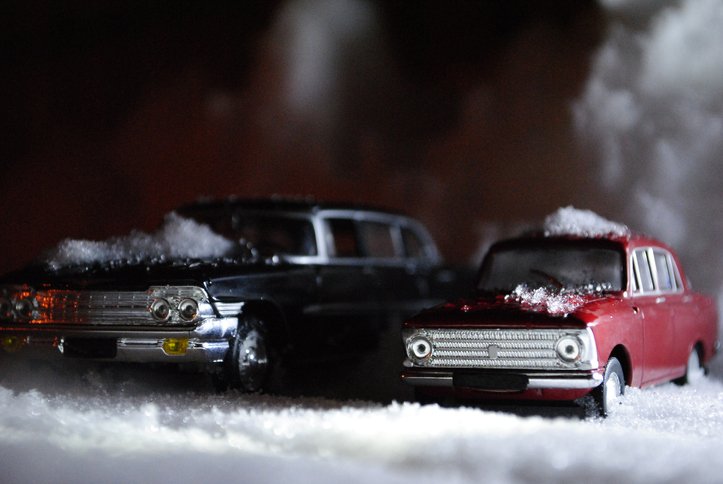Depending on where you live, you may wonder, can you drive your vintage car in the winter? For classic car and truck owners in the Detroit, Michigan area, the answer may not be as cut and dried as it is for vintage car owners in snow-free areas of the country.
For many classic car owners, when the leaves start falling off the trees, that’s an indication that tooling down the road in your classic car or vintage truck may be winding down for the year. Driving your car for only half of the year may make you yearn to move somewhere more vintage-car-weather-friendly, and the restoration and restomod professionals at Wrenchers LLC understand.
If you’ve been putting off winterizing and storing your car for the snowy months, you may want to give this a read before you put on the tarp and bid your car farewell until spring.
Can You Drive Your Vintage Car In The Winter?
Driving your classic car in the winter doesn’t have to be a no-go. But if you do decide to take your restored vintage baby out on the roads in winter, there are some precautions you should take.
You can take your classic car out for a spin, but do it with an abundance of caution and consider these tips.
- Why do you want to drive it? Is it just because you want to get more miles out of enjoying it and don’t want to pack it away for the winter? That’s understandable. Remember, just because you’ve winterized your car doesn’t mean you can’t fire it up and take a spin, but you want to bring it out of hibernation slowly, and you will need to plan to re-winterize it after you’ve had it out.
- Check the weather forecast. There are always those days or weeks when the snow melts, the sun shines and you’re yearning for a drive in your classic car, and why not? If the weather permits, take your car out. Remember, though, that even if there’s no snow, there is probably road salt, and you will need to ensure you’re cleaning your car completely – undercarriage included – once your drive is over. Road salt is the enemy of your paint job. Don’t wash your car if below-freezing temperatures are predicted because you don’t want water freezing and damaging the car or its engine.
- Taking your car for a drive just might help extend the life of the engine – if you do it with care. Starting the car will send a film of motor oil through the internal engine surfaces, help keep them lubricated and protect the engine from corrosion and oxidation. Don’t just start the car; take it for a quick spin and turn it back off. Depending on the outdoor temps, it can take up to twenty minutes for the oil to warm up, burn off the gunk in the system and offer protection. Taking it for a short spin could do more harm than good.
If you’re determined to drive your classic car or truck this weekend, make sure you’re not revving the engine when it’s warming up. Just let it idle for a bit before you put it in gear and take it for a spin. Check the temperature needle, and when it’s in the “normal” operating temp, you’re ready to hit the road. You may need to bundle up for the drive because it could take about ten minutes for the interior to heat up.
Once you’re done with your drive – or drives – this winter, clean off the road salt and undertake the winterizing steps to protect your car until the next thaw or until spring arrives.
If you have any questions about a frame-off restoration or are looking for further insights for protecting your classic car or truck, give us a call or stop by our shop.
At Wrenchers LLC, we are classic, antique and hot rod enthusiasts, and that shows in the craftsmanship of our vehicle restorations. Whether you choose a full frame-off, traditional restoration or custom work for your vehicle, our experienced restoration professionals listen to you and work on your vehicle with the same care they take with their own. When your keys are handed over and you slide behind the wheel after your car has been restored, you will be hitting the road in the vehicle of your dreams.

